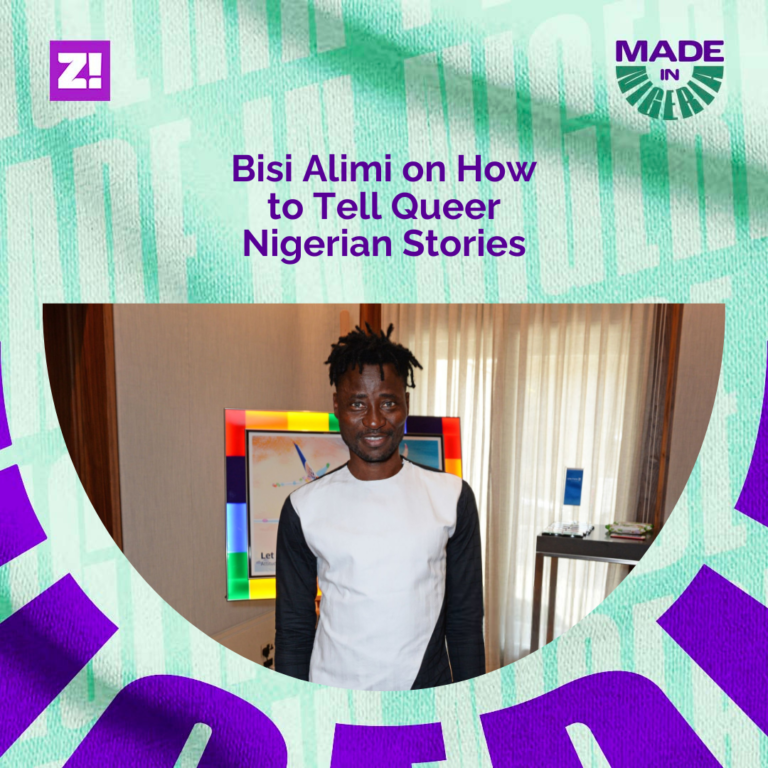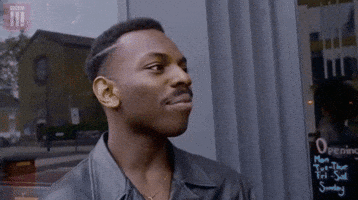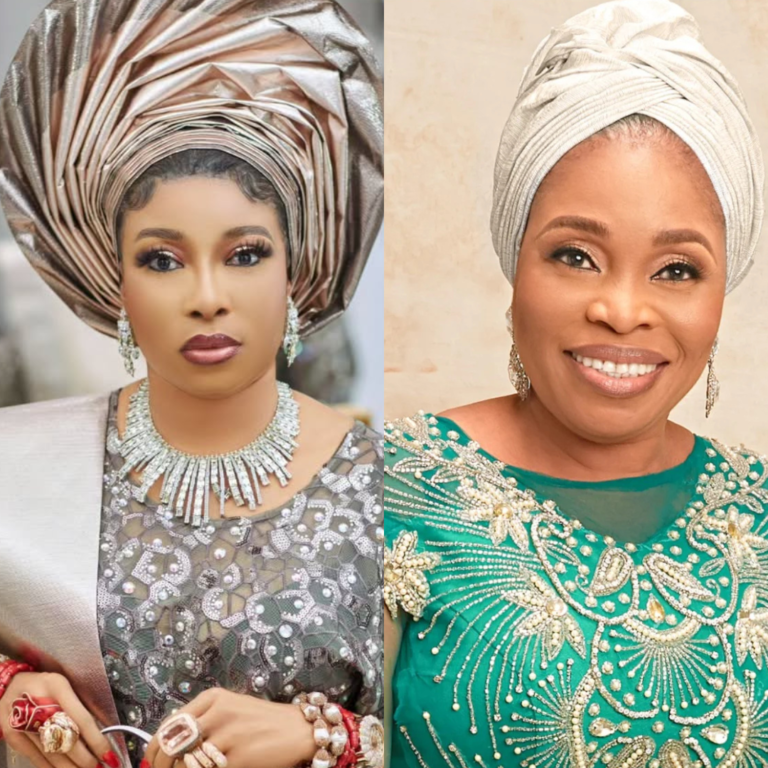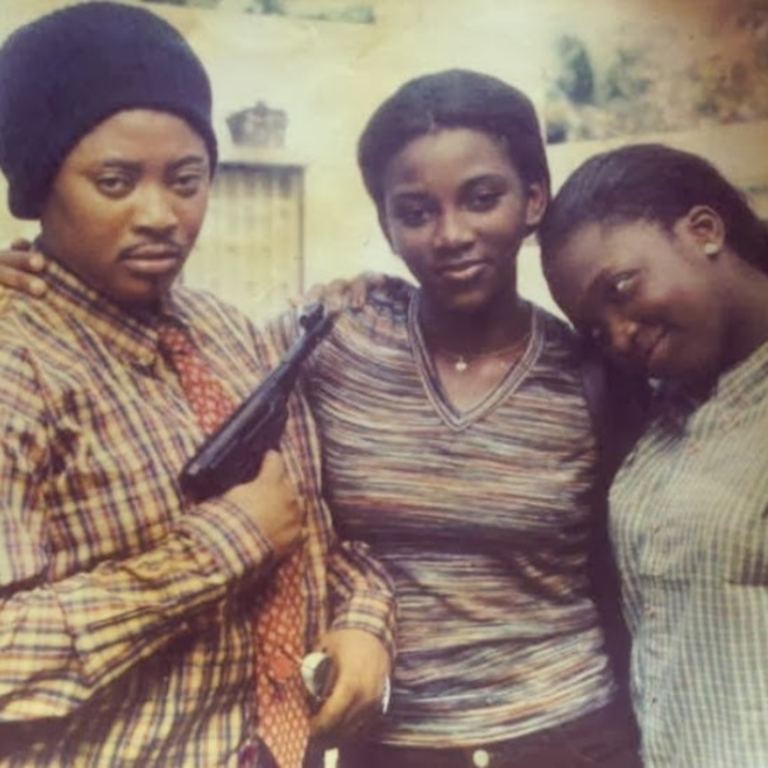From an early age, Emmanuel Okoro knew he wanted to make clothes. Growing up in South Eastern Nigeria, he experimented with what he wore, restyling and reengineering it to give him the swagger he wanted.
After being shortlisted for the Young Designer Platform at the Lagos Fashion Week in 2018, he presented a collection of clothes for his brand, Emmy Kasbit, made with Akwete, a hand-woven fabric popular in South Eastern Nigeria. Now he is at the forefront of sustainability, showing his collections at shows like Paris Fashion Week. Fans of his work include Toke Makinwa, Angela Merkel and Ebuka Obi-Uchendu.
In this week’s edition of #MadeinNigeria, he opens up about how far he has come on his journey, the cost of making fashion in Nigeria, and his ambitious plans for the future.

What was your earliest experience with fashion?
It goes back to when I lived with my parents in the East. I was born in Abia, but after secondary school, I lived in Calabar until I moved to Lagos in 2015.
When I got back from school, I’ll attempt to make my own clothes. Whether I’m going to see my mother at her shop or wherever I try to make my clothes look a particular way. Then when I got into university, I wanted to make more money for myself and what I could think of was transforming denim jackets by adding studs to them and selling them to other students. People were keying into what I was selling. It was a means to go through school without asking too much from my parents.
Why did you move to Lagos?
I moved to Lagos because I wanted to pursue fashion. As we all know, Lagos is the centre of fashion in Nigeria and Africa. People kept telling me to go to Lagos and take this fashion thing seriously.
But when I came to Lagos, I had to do more research to widen my knowledge. So, I ended up working with some fashion houses in Lagos and interning with some designers. I had started Emmy Kasbit on the low, but it wasn’t official until I felt ready.
What was moving to Lagos like?
I came to Lagos for the very first Africa Magic Viewers’ Choice Awards (AMVCA) because I was dressing a friend, Uti Nwachukwu. He wore the outfit, and people really liked what I had made for him.
That was also when I met Ezinne Chinkata, the founder of Zinkata, who became a retail partner for Emmy Kasbit. She saw me at the awards, and she liked what I wore, and I told her I made it. I also took her to Uti and showed her what I had made for him.
She invited me to her store the next day, and that was the beginning of my career in Lagos. I went back to Calabar and started making plans to move to Lagos. In 2015, I moved fully to Lagos.
How did you meet Uti?
At the time, Uti was the host of 53 Extra on Africa Magic, and they had come to Calabar for the Africa International Film Festival (AFRIFF). He needed a designer and put out the word, and someone recommended me. I dressed him for that event, and he advised me to try the Lagos market.


How were you able to break through in Lagos?
It was very tough trying to break into Lagos, a market that even then was saturated and currently is still saturated. I knew only a few people in the Lagos fashion scene, and it was an ecosystem that demanded a lot of hard work, consistency and networking. I tried doing that as much as I could in those days. I went to many events and made notes. I did a lot of research and asked a lot of questions. People who I saw and loved their style I went to check their Instagram. It was always about enlightening myself more.
What was your big break?
Everything started when I won the Fashion Focus Prize at Lagos Fashion Week prize in 2017. I had enrolled for the Young Designer Platform initially, but I didn’t get in, and that threw me off balance. I thought maybe I wasn’t good enough, and I didn’t want to apply again. But a friend encouraged me to, and I found success the second time.
I went through all the stages and was shortlisted for the top five. We were going to show a collection to win the prize. For me, it was a do-or-die affair because I really needed that big moment. I felt that it would step up my game on the Lagos scene. I won, and it registered my name with the press. I landed my first BellaNaija feature.
What was building a fashion business like?
Branding took a lot of time and hard work. I have a business partner now who focuses solely on the business of Emmy Kasbit while I focus on creating. He is a friend of mind and joined in 2020. Initially, Emmy Kasbit was just a fashion label that made clothes. A lot of mentorships from people already in the industry helped me rethink branding. I knew that fashion was a business, and I had to survive off it and wanted to. Now, we have structure. Even when I’m not in Lagos, the business doesn’t suffer.
Who was the first person you hired?
The oldest tailor on the team. This was after winning the prize. I set up a little production space in my living room. I got his contact from an agent who links designers with tailors, and I told him the skills I needed, and he recommended him. I also had to train him and teach him my style and how I wanted the clothes to appear.
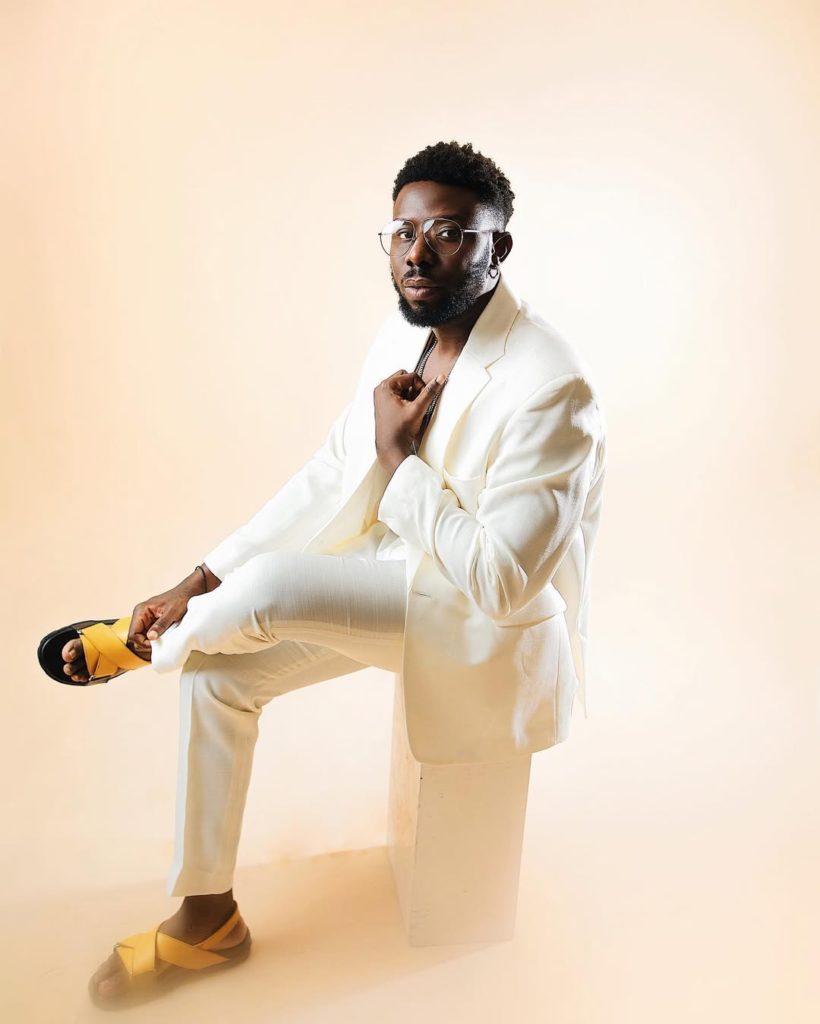
In the early days of building, you were still dropping collections. How did you keep the business afloat?
I believe in consistency. Because I knew I wanted to be here for a long time, even if the business wasn’t making a lot of money, I still did collections. It keeps your name afloat. I don’t think we have missed any season. I knew I had to be consistent. Even when we’re stuck with work, we still find time. We always do two collections yearly.
When did you start to experiment with Akwete?
I never worked with Akwete until my debut season at Lagos Fashion Week, S/S17. I was looking for what would set me apart from the other competitors in the top five. I had a mentor who told me I needed to do something people had not seen before. I went online and researched textiles, and I found a community of Akwete weavers in Abia.
I spoke to one of them, and she keyed into my vision. We designed the production, and she singlehandedly made all the fabrics we used in that collection. It was so well received, but I also knew I owed it to these women to continue this craft. We have to take it to the global market.
What has working with Akwete, a handmade fabric, been like?
It’s been challenging because sustainability isn’t cheap, and working with Akwete also demands so much patience because it’s hard-woven. A lot of time and manpower is involved. It is done by hand, and the women can break down anytime. But what I want to do is ensure that this craft doesn’t go out of style and that the next generation can continue it.
Do you hire the women who weave the fabric for Emmy Kasbit, or are they contractors?
The women are part of the Emmy Kasbit Initiative, which we started in 2022. The whole point of the initiative is to cater for these communities, especially the Akwete communities. We hire the women, and they produce per season.
How do you maintain quality control?
We have people in charge of quality control. Before a piece leaves, it must have gone through three stages of quality control. We have a quality control manager and a product manager who check the pieces. It’s about letting people get value for their money. Everything must be in place.
What has been your experience working with Gen Z?
I think working with Nigerians generally requires a lot of patience. But I personally like to see the good in people. When you hire a young Nigerian, they might make mistakes, but with time, they get better. I believe that there are processes to things, and over time people evolve to where you want them to be. I have never had an issue with a person just quitting abruptly. I also don’t just hire. I always ask the team for their feedback before we hire, and we collectively agree on who we bring in.
When did Emmy Kasbit begin to go international?
In 2021, Vogue conducted a scouting in Africa in partnership with the African Fashion Foundation, and I was selected. I was one of two winners, and a perk of winning was presenting a fashion film at Milan Fashion Week. After that, we started attending fashion shows. We did not do any shows in Milan, but we’ve done a couple at Paris Fashion Week.
What have you noticed is different from the fashion shows in the West and the ones we do in Nigeria
I think it’s a different audience. Nigeria is where Emmy Kasbit is rooted, so showing here is like showing at home. But in Paris, you’re showing to strangers who might not have seen or heard of you before. You might even send an invite to the press, and they might not come because they don’t know you. But good work speaks for itself, and sometimes they check the work online and are fascinated.
One thing the European fashion scene loves is the good craftsmanship that comes with African fashion. In Paris, when African designers show, people always want to see more. They are used to the silhouettes they see in the West, and African designers are bringing something fresh, and they are eager to see it and discover new talent.
Do you think Emmy Kasbit would have succeeded internationally if you hadn’t experimented with Akwete?
I think so, but Emmy Kasbit’s DNA is Akwete. Perhaps it would have been harder to do something else that would have captivated the audience.

A lot of designers are experimenting with Akwete and Aso-Oke. Do you think this is a trend?
I’ll say that sustainability is at the forefront of fashion right now, and African fashion relies heavily on traditional practices, including tie-dye and hand-weaving. These are the things that make today’s fashion.
We’ve had situations where Western designers have hijacked African stories and not told them the right way. I think that our duty as African designers is to own these stories and tell them better. We do this by reaching into old traditions and presenting them to the world. I think it’s here to stay and not a phase.
Are Nigerian designers becoming too expensive?
What I will say is that the Nigerian economy is a bit shifted at the moment.
So much so that pieces can now start at ₦1.5 million?
To each brand their business model. If a brand offers a garment for that price, then you need to consider the steps the designer went through to make the garment. They must have done their markups. We don’t just sell things at any price. When you look at a garment, you should be able to tell why it is expensive. But really, the state of the economy is primarily responsible. We’ve had times when we reviewed prices at Emmy Kasbit within three days. The economy is affecting all industries.
What do you think of influencer gifting?
We hardly do influencer gifting. Maybe all year, we might just do influencer gifting once. If we do, it might just be for five customers who have been supporters of the brand all year. It’s also a way to promote that collection, so it’s a win-win situation.
What advice will you give to a young designer on attaining profitability?
Know your numbers and target client. Knowing your target client allows you to understand how much your customers can spend. And start from a minimum price. When you build the clientele, you can take up the prices. Also, don’t always expect to make millions from a limited capsule. Sometimes you might run into losses.

Where do you see yourself and Emmy Kasbit in five years?
I still want to be a designer, but we’d have opened multiple stores worldwide, and I’ll be shuffling my stores. I see the brand with multiple retail partners worldwide. I still see us experimenting with Akwete worldwide. I see myself gracing the covers of many magazines.

